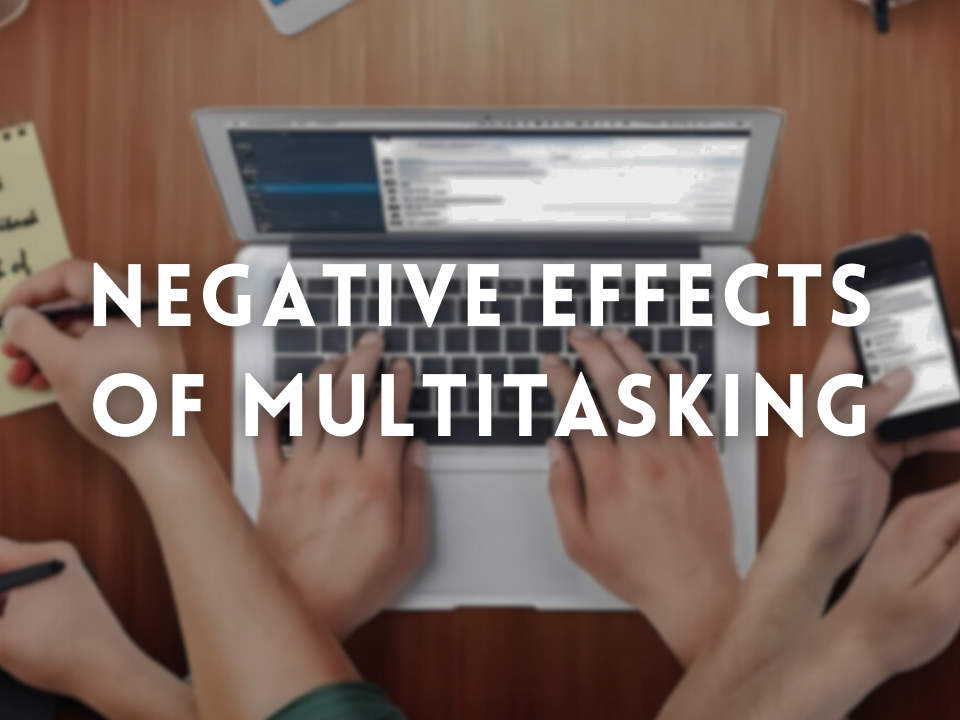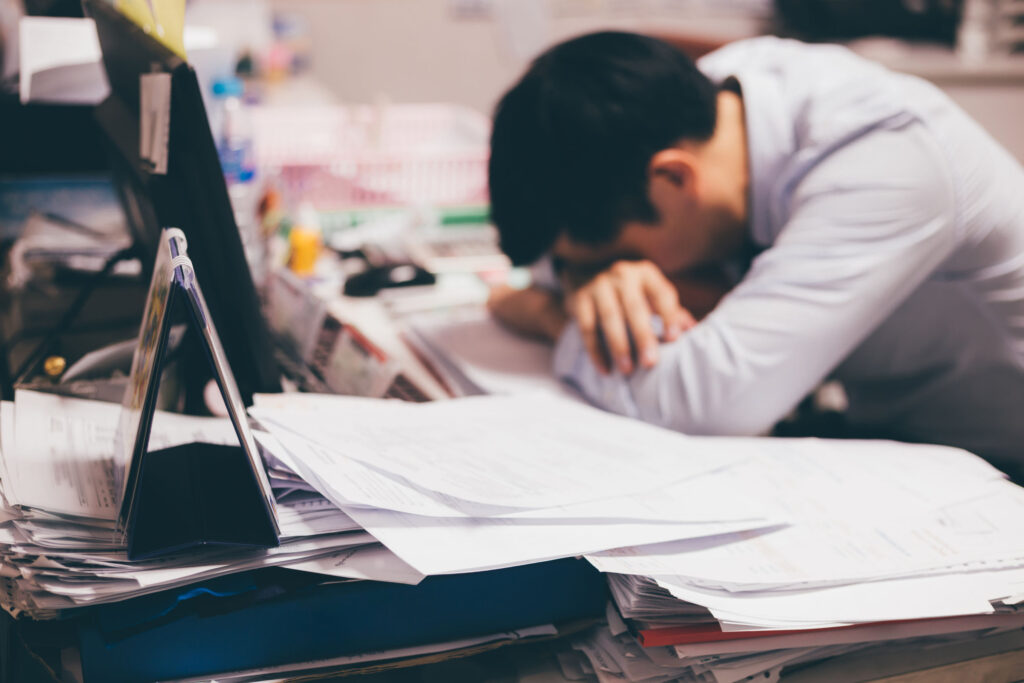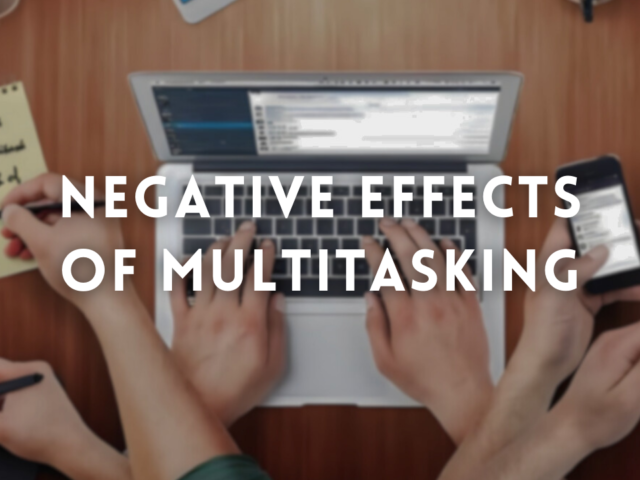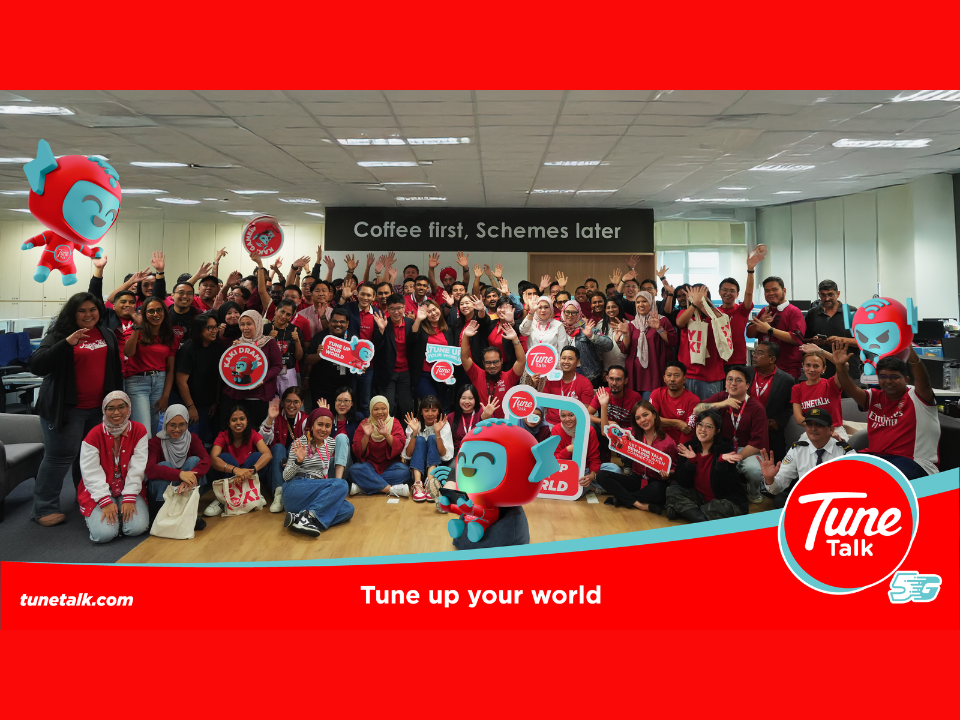
The ability to multitask is frequently praised as a sign of success. People consider those who can handle numerous tasks with ease to have a superpower. But as we dive deeper, multitasking isn’t always the panacea that people make it out to be. In reality, several negative effects of multitasking can seriously harm our productivity and well-being.
The Negative Effects Of Multitasking That People Should Know
We all know that one of the best ways to complete several tasks at once is to multitask. But, it is damaging and even has the potential to cause some of the bad effects.
1. It Killed Your Productivity

Image via Asian Efficiency
First of all, multitasking may seem like a time-saving tactic, but it can kill your productivity. The human brain was not made to handle multiple tasks simultaneously. Your brain needs some time to refocus and reposition itself when you transition from one task to another.
Your productivity may suffer significantly as a result of this “switching cost”. Each interruption disrupts your workflow, making it difficult to achieve deep concentration and produce high-quality work that may lead you to stress. Here are some of the apps and websites to help people keep being productive.
2. It Increased Stress Levels

Image via CNBC
Next, multitasking increases stress levels because it makes people feel rushed which leads to more errors, and keeps their focus scattered. The strain of juggling many things at once can cause persistent stress and anxiety, which has an impact on both personal and professional life.
Try to prioritize single-tasking and use efficient time management strategies to reduce this stress. People might need to find ways to tackle their stress to keep them relaxed.
3. Low Quality Of Work

Image via HRM Asia
Furthermore, multitasking often leads to a low quality of work because your attention is divided between tasks, leading to mistakes, and poor outcomes. The constant shifting of focus disrupts your ability to concentrate, and it compromises the quality of your work. It can be particularly problematic in professions that demand accuracy and precision, as multitasking can result in mistakes and decreased productivity.
4. Overlooked Personal Well-Being

Image via HR Asia
Therefore, neglecting personal well-being is another disadvantage of multitasking. Self-care always be the last thing in mind when people are constantly juggling work. Physical and mental health problems might result from neglecting breaks, exercise, and a nutritious diet.
Multitasking demands can lead to burnout and a decline in well-being. To avoid this, it is essential to put self-care first, set boundaries, and schedule time for rest and exercise to maintain a good work-life balance.
5. Reduced Creativity

Image via Thrive Global
Last but not least, creativity often requires a deep level of focus, something that’s nearly impossible to achieve when multitasking. This is because when your attention is divided, your mind doesn’t have the space to wander, connect different ideas, and think creatively. So, people may find it challenging to brainstorm innovative solutions or generate fresh ideas.
In a nutshell, recognizing the many negative aspects is crucial in a culture that promotes multitasking. It may be damaging to both your personal and professional life, from decreased productivity to your well-being. It is time to reconsider the strategy and discover the effectiveness of concentrated single-tasking.










